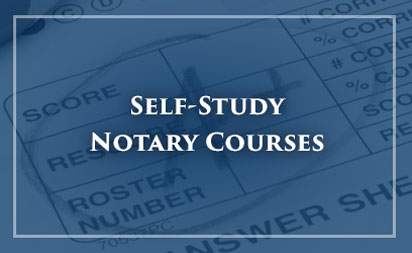At a Glance
Do you need help preparing for the California Notary State Exam?
This feature is for you!

The free At a Glance feature is a valuable tool for Notary Public State Exam Preparation:
- Just read!
- helpful for pre-study
- what a notary needs
- be ready
Easy to use
- Click the Plus Signs to expand the topic you wish to review.
Points/Requirements
- A Notary’s commission is valid for 4 years.
- A Notary can notarize documents anywhere within the borders of the State of California.
- A Notary is required to clear a background check by being Live Scan Fingerprinted before each commission.
- Certain actions will bar a Notary from being commissioned by the Secretary of State:
- Failure to disclose any arrest or conviction on the notary application;
- Conviction of a felony where not less than 10 years have passed since the completion of probation;
- Conviction of a disqualifying misdemeanor where not less than 5 years have passed since the completion of probation; and
- Non-compliance with child or family support obligations.
- A Notary cannot give legal advice about immigration or any other legal matters unless he/she is an attorney.
- A Notary is required by law to perform notarizations when a proper request is made.
- A Notary is required to obtain a right thumbprint for all documents involving real property and powers of attorney.
- The notarial acts and procedures are:
- Acknowledgments
- Jurats
- Signature by Mark
- Proof of Execution by Subscribing Witness Certificates
- Certified Copies Power of Attorney
- Certified Copies the Notary’s journal
- Before a document can be notarized, it must:
- Be complete,
- Contain the signature of the Principal, and
- Have the correct notarial wording.
- The Notarial Act is only completed by the Notary (not the signer).
- Notarial wording can either appear on the document or on a Loose Leaf Certificate.
- When performing a notarization, it is important to complete each step in its entirety. The three-step process is:
- Identify the signer;
- Complete the Journal entry;
- Signer/Principal’s signature, and
- When necessary, his/her right thumbprint.
- Fill out notarial Act/Wording.
- The Notary’s Seal/Stamp and Sequential Journal must be kept under the exclusive and direct control of the Notary (i.e., locked box or desk drawer).
Notary Rules and/or Exceptions
- Every signer must be identified by Satisfactory Evidence, which are:
- Specified Paper Identification Documents
- Oath of a Single Credible Witness, or the
- Oath of Two Credible Witnesses
- Maximum Notarial Fee is $15, except:
- Deposition—$30, Administering the Oath $7, and $7 for the certificate to the deposition.
Never higher than $44.
- Deposition—$30, Administering the Oath $7, and $7 for the certificate to the deposition.
- The signer must personally appear before the notary to have his/her signature notarized; exception:
- Subscribing Witness—A signer may have another person prove to the notary that he/she signed the document.
- Every signer must sign the document and the notary journal, exception:
- Signature by Mark—when the signer is unable to sign or write his/her name, the signer may have the document notarized by making a mark in the presence of two witnesses.
- Notaries Public notarize signatures; they do not certify documents, exceptions:
- Copies of his/her own Notary Journal and
- Copies of a Power of Attorney
- 30-day rule when notaries must reply to the Secretary of State, except:
- Immediately—when the stamp/seal is lost or stolen,
- Immediately—when the journal is lost or stolen, and
- 10 days—when the journal is taken by a peace officer.
- Use stamp/seal on all documents notarized, except:
- California Subdivision Maps
- The Seal/Stamp is not to be surrendered to anyone, exception:
- Court/Judge will require the surrender of the seal/stamp after a notary public’s commission is revoked when convicted of a crime related to Notarial Misconduct, including the false completion of a notarial certificate, or any Felony.
- The Court/Judge will forward the seal to the California Secretary of State with a certified copy of the judgment of conviction.
- NOTE: This is the only time anyone can possess your seal because you are to destroy your seal when your Commission is no longer valid.
- Court/Judge will require the surrender of the seal/stamp after a notary public’s commission is revoked when convicted of a crime related to Notarial Misconduct, including the false completion of a notarial certificate, or any Felony.
- Journal is kept under the notary’s exclusive and personal control; no one may have access to the information in it, except:
- Members of the public may receive a lined item copy from the journal upon written request,
- Court Order, examination and copying may be done in the notary’s presence, and
- Employer’s business examination and copying in the notary’s presence.
Fines and Penalties
- $75,000 Fine
- Deed of Trust Fraud—Willful fraud and false filings in connection with a Deed of Trust on a Single-Family Residence
- $10,000 Penalties
- Identity of the Credible Witness—Failure to obtain the satisfactory evidence required to establish the identity of a single credible witness.
- Penalty of Perjury/Acknowledgment—Willfully states as true a material fact and/or falsifies a certificate of acknowledgment.
- $2500 Civil Penalties
- Failure to Provide Journal a peace officer the notary journal when requested.
- Failure to Obtain Thumbprint as required.
- $1,500 Violations
- NOTE: The following $1,500 violations have this in common - they are willful and intentional.
- The use of false or misleading advertising wherein the notary public has represented that he or she has duties, rights, or privileges that he or she does not possess;
- Commission of any act involving dishonesty, fraud, or Notarial misconduct.
- Execution of any certificate as a notary public containing a statement known to the notary public to be false;
- Violating the prohibition against a notary public who holds himself or herself out as an immigration specialist or consultant advertising that he or she is a notary public or
- Violating the restrictions on charging to assist in the completion of immigration forms; and
- Violating the restrictions on advertising notarial services in a language other than English or
- Literally translating the words “notary public” into Spanish;
- Willfully failing to discharge fully and faithfully any of the duties or responsibilities required of a notary public.
- Unauthorized manufacture, duplication, or sale of the notary public seal;
- Failure to notify the California Secretary of State that a notary public seal is lost, stolen, destroyed or damaged.
- $1,000 Fine
- Unlawful Practice of Law - Any person practicing law who is not an active member of the State Bar is guilty of unlawful practice of law.
- $750 Violations
- NOTE: These $750 violations have this in common - they are oversights and not willful, but still a violation.
- Failure to Discharge Notary Duties.
- Charging more than the notary fees prescribed by the notary law.
- Failure to complete the acknowledgment at the time the notary's signature and seal are affixed to the document.
- Failure to administer the oath or affirmation as required.
- Taking Improper Identification
- $500 Infraction Penalties
- Failure to notify the Secretary of State of:
- an address change of business, mailing, or resident, and
- the name change of the notary public.
- Failure to notify the Secretary of State of:
These penalties may be in addition to denial of an application or suspension or revocation of the notary public commission, and be guilty of a misdemeanor/felony and liable in a civil action for damages to any person injured.
Key Points
- The following Notarial Acts require exact wording:
- Acknowledgment
- the most common form of notarization;
- in the notary’s presence;
- the notary is to positively identify the signer;
- the signer acknowledged signing the document.
- Out-of-state acknowledgments are acceptable only if the certification does not require the Notary to supersede California notarial law.
- Jurat
- the second most common notarization;
- in the notary’s presence the signer must sign document and
the notary must administer a separate oath for each Jurat. - Out-of-state Jurats are not acceptable and a loose leaf Jurat must be used.
- Proof of Execution by a Subscribing Witness Certificate
- used when the document signer/principal cannot personally appear before a notary.
- Cannot be used on any documents affecting real property or on any documents requiring a thumbprint in the journal.
- Subscribing Witness must be identified by a credible witness with ID.
- There must be an “unbroken chain” of personal knowledge: the Notary must know the Credible Witness, the Credible Witness must know the Subscribing Witness, the Credible Witness must know the Subscribing Witness, and the Subscribing Witness must know the Principal.
- Acknowledgment
- A Notary can notarize a document in a language he/she cannot speak or read (as a notary is not responsible for the contents of the document) as long as the notarial wording is in English.
- A Notary cannot notarize for a signer with whom he/she is unable to communicate;
- an interpreter may not be used.
- Signature by Mark:
- Requires two Viewing Witnesses who observe the Signer/Principal make his/her mark on the document and the notary's journal.
- The Viewing Witnesses do not have to be identified.
- The Viewing Witnesses must sign the document as witnesses.
- Witness #1 must cursive the Signer/Principal’s name next to the mark on the document.
- Witness #1 or the Notary must write the Signer/Principal’s name next to the mark in the notary's journal.
- A Notary must take, subscribe, and file the oath of office and file a $15,000 surety bond with the county clerk's office of place of business stated in the application within 30 calendar days from the date stated on the commission.
- Errors and Omissions Insurance would protect a notary who has damaged someone due to his or her notarial misconduct or negligence.
- Even simple oversights, such as a failure to affix your notary seal or to properly identify the customer could subject you to be personally liable for losses.
- A notary public is not prohibited from notarizing for relatives:
unless doing so would provide a direct financial or beneficial interest to the notary public. - A notary’s employer may limit, during the ordinary course of employment:
- for whom and when to notarize, and
- how much the notary may charge.
- A notary public is prohibited from giving legal advice/practicing law, unless the notary public is also a licensed California attorney.
Test Taking Pointers
- Relax and maintain a positive attitude while testing.
- Focus on your own test, not others.
- Determine what concept the question is testing.
- Read the question, come up with the answer in your head, then read the possible choices.
- This way the choices given on the test won’t throw you off or trick you.
- Look for the overriding rules.
- This is especially useful for word problems and scenarios.
- When presented with a scenario, determine who the Notary is in the scenario.
- Select the “best” answer.
- Use a process of elimination and select the “best” answer from the choices given.
- If you are not 100% sure of the answer, skip the question for now.
Sometimes the test itself will help you answer the question.- Be sure to come back and answer the question.
- Remember an unanswered question is a 100% wrong answer;
- a wild guess has a 25% chance of being the correct answer.
- Select the most whole and complete answer, which can stand on its own.
- Look for keywords in the question (e.g., except, all, not, all except, etc…).
- Read the test question through once looking for these key words and circle them.
- Then re-read the question.
- Then read all the choices before selecting the answer.
- “All of the above” and “None of the above” answer choices:
- if you are certain one of the statements is true, don’t choose “None of the above”; or
- if one of the statements is false, don’t choose “All of the above”.
- Don’t read into the question; answer only what is being asked.
- The procedure may be correct, but is that what is being asked?
- If a specific document is named, determine what special conditions or limitations pertain to that document.
- Usually the correct answer is the choice with the most information.
A positive choice is more likely to be true than a negative one. - Ask yourself does the answer make sense and does it cover the whole problem?
- When all else fails—choose “b”.
For additional preparation, check out our Blog
and take our free Practice Tests.
#1 in Customer Service Since 2005!








